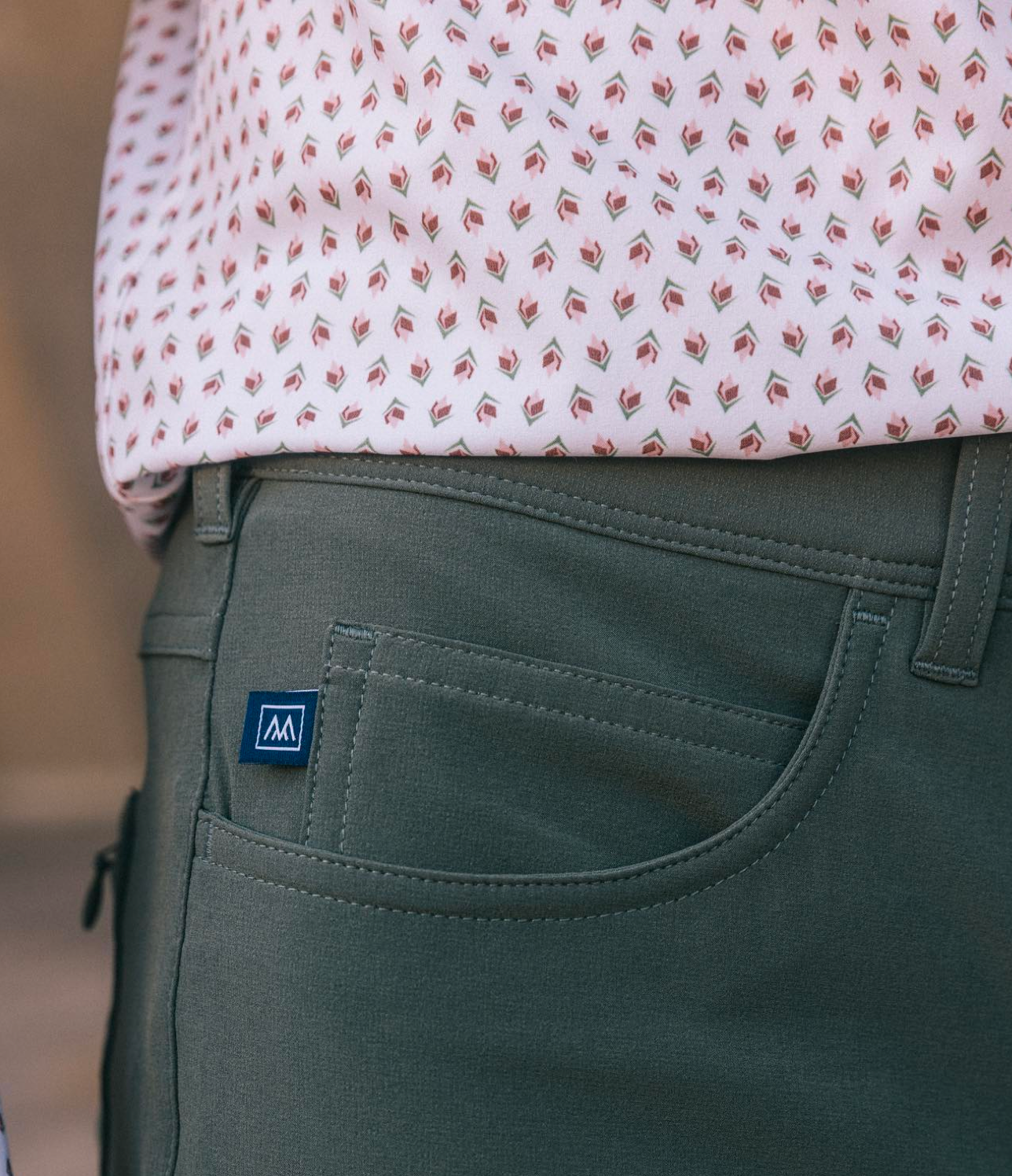How did you start working in eCommerce?
It’s a funny story. I changed my degree a couple of times when I was in college; I started in physics and then landed in technology. I started my career working at Zale — I went there because they were just starting to build out their eCommerce department, but they actually didn’t have any openings, so I actually went the merchandising route.
When I left there last year, I was ready for a change. I didn’t want to be in traditional retail, and wasn’t sure if I wanted to be in retail at all. So when I saw the role at Mizzen + Main, it made perfect sense because my background was originally in eCommerce and technology, and this felt like a good marriage of what I love to do and what I was already great at. It allowed me to be much more analytical in my role, and it seemed to be a really good way for me to delve into doing cool and innovative things that you can’t do in brick-and-mortar stores.
I was lucky to spend so much time at a legacy brand, but what’s great about being in an entirely digital environment, is that it means your imagination is your limitation. You can say, “Let’s try this. Let’s try that.” and we can implement anything quickly. So this felt like a natural evolution of my career path.
What does your typical work day look like?
It’s…bonkers. There are, unfortunately, a lot of meetings in my role, but one of the fun things about being in eCommerce is that it touches all the other departments. It’s very cross-functional. So, meetings spanning everything from marketing and photography to product development, and then there’s a lot, a lot of analysis. I think that goes with any kind of role when you’re leading a sales channel.
Other than that, I try to spend a little bit of time every day catching up on industry news, comp shopping — which is sometimes an expensive habit. Every day is different, which makes it exciting. There are some things that remain the same, like Mondays are always for reporting, but the day to day is always something different, especially in a young company where we’re growing so rapidly; What we did last month looked totally different from what we’re doing this month.
Are there other women in the industry that you admire & why?
Andrea Patel at HEB. She has worked in several roles in eCommerce for big retailers. Among her list of accomplishments, she has implemented two large-scale platform migrations, worked in SEO/SEM, content management, and now as an analyst. We have known each other for more than 20 years and she is usually my go-to person when I want to bounce ideas off someone or have questions.


What do you love most about your job?
What I like most about my job is that it’s a really nice marriage between creativity and analytics, and being able to use the two of those things together to problem solve in unique ways. I think other people look at me like “I would never want to have to work on that project you’re working on” and I’m like “I love this project!”
I’ve always loved puzzles and problem solving. And in my role I can use data to make meaningful strategies. Being a digitally native company, we can just test out and try new things on the site. Some things are cool, and some things you thought would be cool and they’re not, but you still tried them. Either way, we can take that analytical data and translate it into something really great for our customers.
What advice would you give to others looking to work in the industry?
Be curious and keep an open mind. Learn constantly. Technology changes so quickly that you have to be open to the change and excited about it. You have to be flexible and ready to go out with the old and in with the new. Always think about what’s coming next, because today, you might be taking other people’s technologies and implementing them into your site, but tomorrow, you might come up with the next thing that everybody else will want.
What do you think is the next big development/trend that will define the industry?
I think as people adopt AR in more ways, it will become a defining factor for many businesses. Their ability to take an online experience and make it as seamless as making a purchase in store will become critical. And being able to use tools like AR and VR to improve the experience from offline to online and vice versa will become increasingly important.










